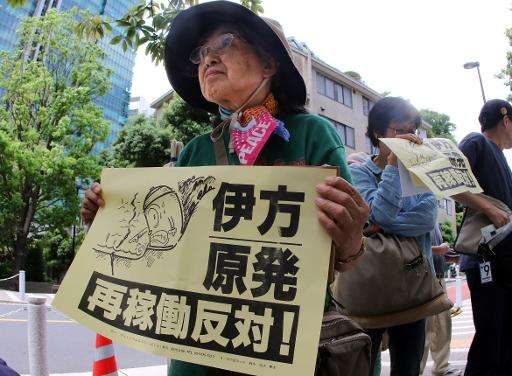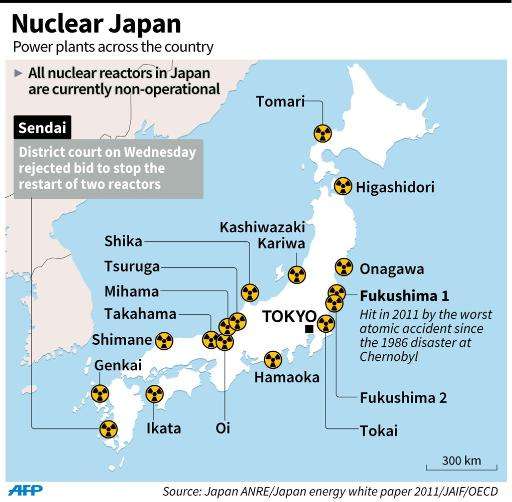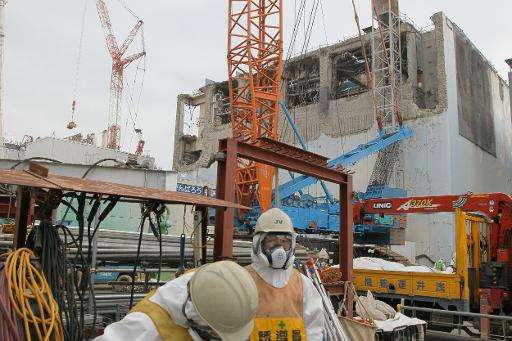Japan nuclear watchdog approves one more reactor

Japan's nuclear watchdog on Wednesday gave the green light to restart one more atomic reactor, weeks after the government said a fifth of the country's electricity supply should come from atomic power.
The decision by the Nuclear Regulation Authority (NRA) that reactor No.3 at Ikata nuclear power plant in western Japan meets safety guidelines, comes after similar decisions on four other reactors at two different plants.
However, any actual restart could still be some considerable way off; there must first be a lengthy public consultation and local authorities must also give their blessing.
Last month a court granted an injunction banning operators from restarting two greenlighted reactors amid concerns over lax safety standards.
The nuclear issue is a highly sensitive one in Japan, which remains deeply scarred by the tsunami-sparked disaster at Fukushima in 2011, when reactors went into meltdown after their cooling systems were flooded.
The worst atomic accident in a generation forced tens of thousands of people from their homes, with some still displaced and scientists warning tracts of land might be uninhabitable for decades.
Japan's entire stable of reactors—which once provided a quarter of the country's electricity—was gradually switched off following the disaster.
While Prime Minister Shinzo Abe's administration and much of industry are keen to return to atomic generation—largely because a cheaper yen has sent the cost of dollar-denominated fossil fuels soaring—the public is unconvinced.

The government said last month it wants 20-22 percent of the country's electricity to come from nuclear power by 2030, a target campaigners said meant every single viable reactor in the country would have to be switched back on.
Environmental activists Greenpeace said the NRA's latest decision took insufficient account of the risk from earthquakes and of public opposition.
"The NRA ignores scientific evidence and major earthquake risks in its single-minded push to restart Japan's crippled nuclear reactors," said Kazue Suzuki, nuclear campaigner with Greenpeace Japan.

"It has utterly failed to learn the lessons of the Fukushima nuclear disaster. That is unacceptable to the people of Japan and places the public at undue risk," she said.
"We strongly support the efforts" of local residents "who are determined to stop the Ikata reactor from operating", she added.
© 2015 AFP





















